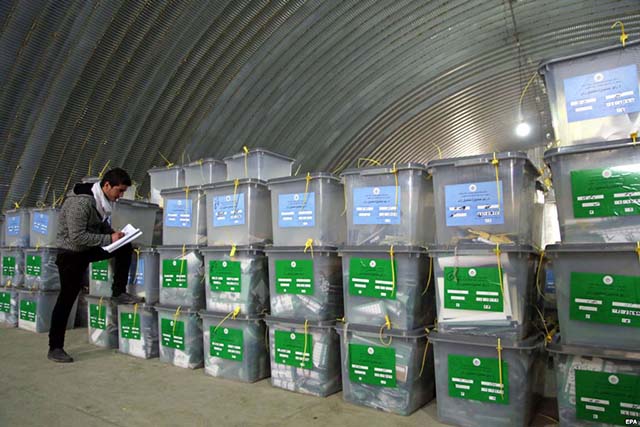With the withdrawal of coalition forces in 2014, the insurgency has increased in Afghanistan and engendered fear and disappointment among the public. Afghan nation bore the brunt of militancy within the two past years and found their civil rights and freedom at stake since warring parties ushered in indiscriminate killings. The appointment of Mullah Haibatullah Akhundzada as Mansour’s successor has further undermined the political stability and inflicted heavy casualties upon Afghan combatants and non-combatants.
Afghan nation fluctuated between high hopes and unmitigated despair. The presidential election held in 2014 and candidates’ mouth-watering promises filled the nation with a sense of hope and trust. Election – which is a “festival of democracy” – was considered to be a historical milestone and form a society void of violence and bloodshed. Afghans dreamed of a utopian community, where their rights and liberty were respected and they would not suffer on the basis of their caste, creed and color.
Indeed, people will nurture a strong social bond and political solidarity under the true spirit of democracy and differences will not trigger negative sentiments among the public. Similarly, the state will have to strengthen national unity, social cohesion and territorial integrity through safeguarding citizens’ rights and liberty – as candidates vowed to during their presidential campaigns.
To Afghans’ unmitigated chagrin, the Independent Election Commission (IEC) did not declare the final and definite result of the hotly contested election due to lack of transparency and Ashraf Ghani and Dr. Abdullah Abdullah established a National Unity Government (NUG) through political negotiation. Since IEC was implicated in the scandal, a central part in the negotiation was a commitment to electoral reform – which is still an issue. In sum, this false start diminished the public hope.
In addition, political dilemma about selecting cabinet members was a second slap in the face of democracy and led the country towards serious crisis. Despite mounting insurgency, the key posts, including Ministry of Defense, were controlled by acting heads for a long period. The security situation changed subtly from bad to worse and the NUG encountered the predicament of Taliban’s spring offensive declared last year. Therefore, Afghan soldiers and U.S. residual forces are in the throes of protracted war imposed by the Taliban.
A number of the Taliban members have allegedly pledged loyalty to the self-proclaimed Islamic State of Iraq and the Levant (ISIL) – which has gained a firm foothold in Nangarhar province of Afghanistan. Evidence suggests that the emergence of ISIL group has aggravated the security situation as it stoked sectarian violence and abducted the individuals on the grounds of their race and color. Up to now, the militancy left heavy casualties behind. Based on the UN’s report, at least 1,601 civilian have been killed and 3,565 others wounded in the first half of the current year, showing a record surge of four percent compared to the same period in 2015.
To consider the facts objectively, the grotesque reports about civilian casualties will weaken the public sentiments and erode the nation-state trust. Contrary to the candidates’ statements and their agenda that suggested political and economic reforms, the challenges, including militancy and death toll, have increased.
The aforementioned issues unmask the fact that the state is embroiled in challenges existing inside and outside the government’s machinery. The political conflicts between the heads of the NUG led to a nation-state gap and redirected the government’s energy from combating terrorism to less important issues. Rather than adopting an effective mechanism to counter insurgency, they condemned terrorist networks for carrying out suicide attacks and accused Pakistan of providing safe havens for them – the assailing failed to decrease insurgency.
On the other hand, the Taliban outfit sought to fish in the troubled waters through intensifying their attacks. In spite of peace offering from Afghan government, they declared spring offensive and staged heavy attacks against the country Moreover, a number of the Taliban members pledged allegiance to the ISIL group following the death of Mullah Omar – which resulted in splinter group – and left Afghan nation at the mercy of greater violence and bloodshed.
Appointed as Omar’s successor, Mullah Akhtar Mansour bitterly opposed the peace talks and signaled it as “enemy’s propaganda”. He orchestrated more deadly attacks against Afghan nation and spilt the blood of men, women and children without an iota of mercy. As ever, the Taliban militants trampled upon human rights and dignity of the public and impaired democratic values in the country.
Currently, since violating human rights is prevalent in the country, due to escalated militancy, the inference of political analysts is that the nascent democracy will not bear the desired fruit in Afghanistan despite the approval of Constitution and elections held to establish democratic administration.
Home » Opinion » Obstacles before Democracy
Obstacles before Democracy
| Hujjatullah Zia

